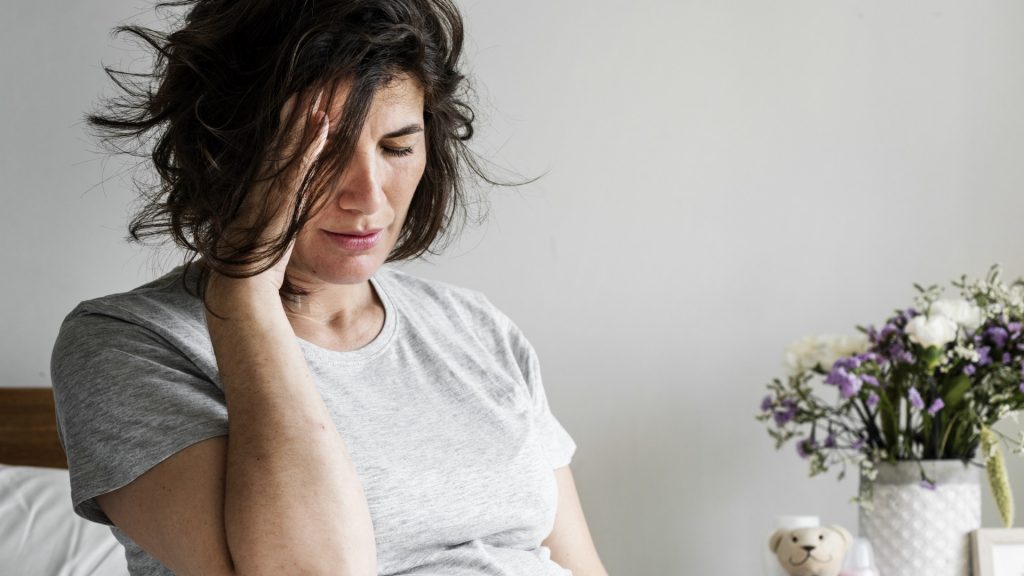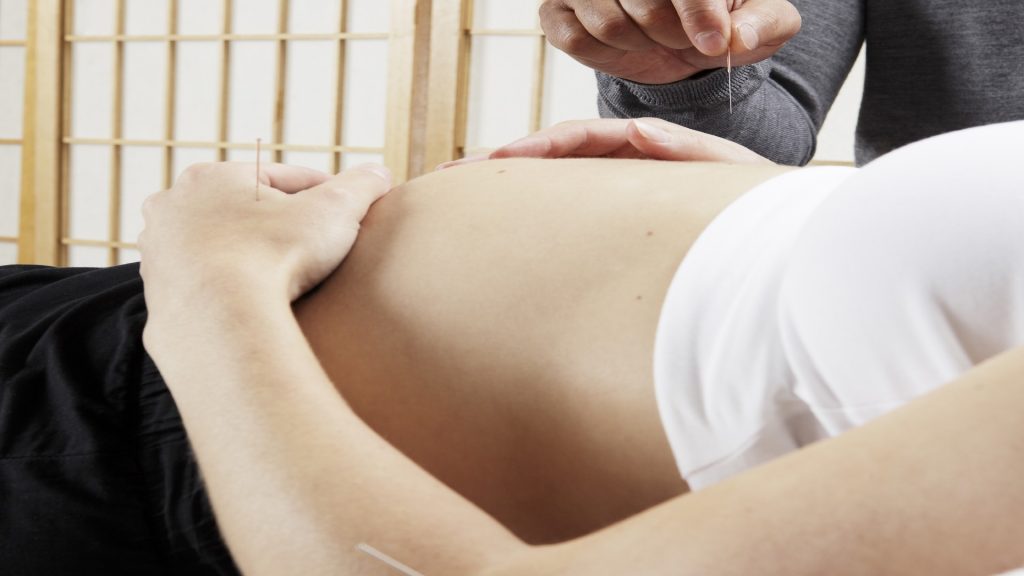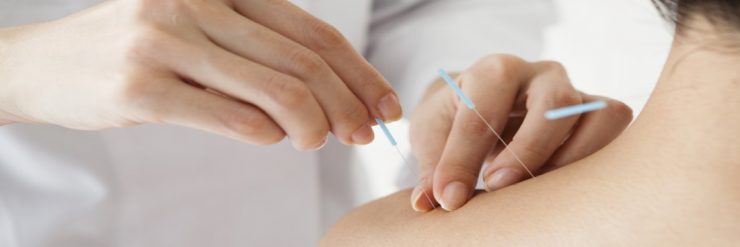You might already have used acupuncture before, but did you know that this traditional Chinese practice can also be of precious help during pregnancy and after birth? Read more about the benefits of perinatal acupuncture below.
1. What is acupuncture and is it safe during pregnancy?
Acupuncture is a traditional Chinese healing practice where thin needles are placed at specific points in the body to stimulate those points. They are known as key points. Many of these key points are known to correlate to deep seated nerves which may explain why endorphins (those “feel good” hormones) and other brain chemicals are released during an acupuncture session. When carried out by a trained, certified and experienced professional, acupuncture during pregnancy and postpartum is considered safe and with very few risks. Redness or pain at the needle insertion site is the most common complaint.
2. How can acupuncture help me during my pregnancy?
Acupuncture during pregnancy has been shown to offer relief for many common pregnancy related symptoms. You may find relief from some of the common issues relating to pregnancy including:

- Morning sickness
- Insomnia and fatigue
- Lower back, hip, and pelvic pain
- Heartburn and constipation
- Pregnancy-induced hypertension
- Swelling and oedema
- Headaches and migraines
An acupuncturist experienced in dealing with expectant mothers may also be able to address issues relating to:
- Breech birth
- Labour delays
Acupuncture is seen as a way of gently supporting your hormones and nervous system during pregnancy. An experienced practitioner will take a full history to assess your health and the possible cause of your discomfort, before using protocols that are safe during pregnancy and postpartum.
3. How often should I have acupuncture while pregnant?
How often you have an acupuncture treatment while pregnant is a matter of personal choice. Practitioners might recommend weekly sessions during the first trimester to address issues such as morning sickness and fatigue, with sessions every 2-4 weeks as your pregnancy progresses depending on your needs. You might find that at different stages of your pregnancy you are more or less able to enjoy or tolerate certain treatments, so listen to your body.

4. I’ve heard I can use acupuncture to treat depression during pregnancy. How does this work?
Depression during pregnancy is more common than you may think. Due to the potential harmful effects of anti-depressant medication on the foetus, many pregnant women do not want to use any anti-depressant medication during their pregnancy. You may have experienced depression prior to becoming pregnant, or find that pregnancy hormones or complications trigger depression or persistent negative feelings.
Acupuncture triggers a cascade of inflammatory, immune, and nervous responses that appear to effectively address the symptoms of depression during pregnancy for many women. It may also assist with other maternal health concerns that may arise as a result of depression such as insomnia, poor appetite, and lack of energy.
5. Can I use acupuncture together with other holistic and mainstream treatments?
Treatment by a qualified and experienced acupuncture practitioner can be used safely as a treatment alongside other holistic and mainstream practices. Like with all therapies, it is important to find a practitioner that is qualified and experienced, and that will take your pregnancy into account when treating you. Some acupuncturists may recommend herbs or supplements for you to use. Even if these are considered safe during pregnancy, you should decide for yourself or with the help of your medical team whether you are comfortable with their use.
6. Is postpartum acupuncture helpful?
The birthing process is a transitional process, and regardless of whether the birth itself was easy or complicated, your body will take time to adjust. Some of the benefits of acupuncture postpartum might be:
- Stress release and relaxation. Postpartum acupuncture can calm the nervous system and assist in maintaining an emotional balance.
- Healing and rejuvenation. Certain acupuncture practices including the use of herbal therapy and moxa (a warming therapy used on acupuncture points) are used together to assist in the postpartum healing process.
- Time for yourself. Setting aside a small amount of time for acupuncture or another self-care practice allows you to fill your own cup and allows you to be a better parent.
- Emotional healing. The time during pregnancy, birth, and immediately postpartum can be emotionally draining. Certified acupuncture practitioners are trained to look for the root causes of any physical or emotional imbalances and will aim to provide the body and mind with supportive postpartum acupuncture healing practices.
Would you like to book a consultation with an acupuncturist? Browse through our network of selected pregnancy therapies providers or postpartum recovery experts!






[…] here our blog article about acupuncture during and after […]
[…] More pregnancy related articles? Read about pregnancy fatigue or prenatal acupuncture! […]